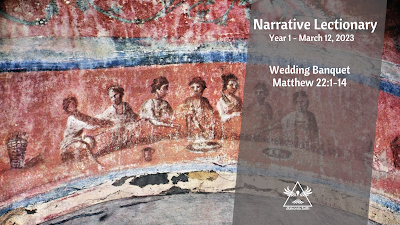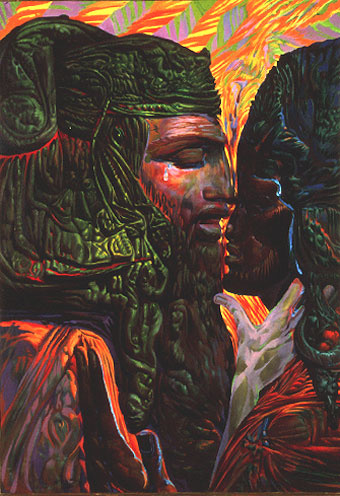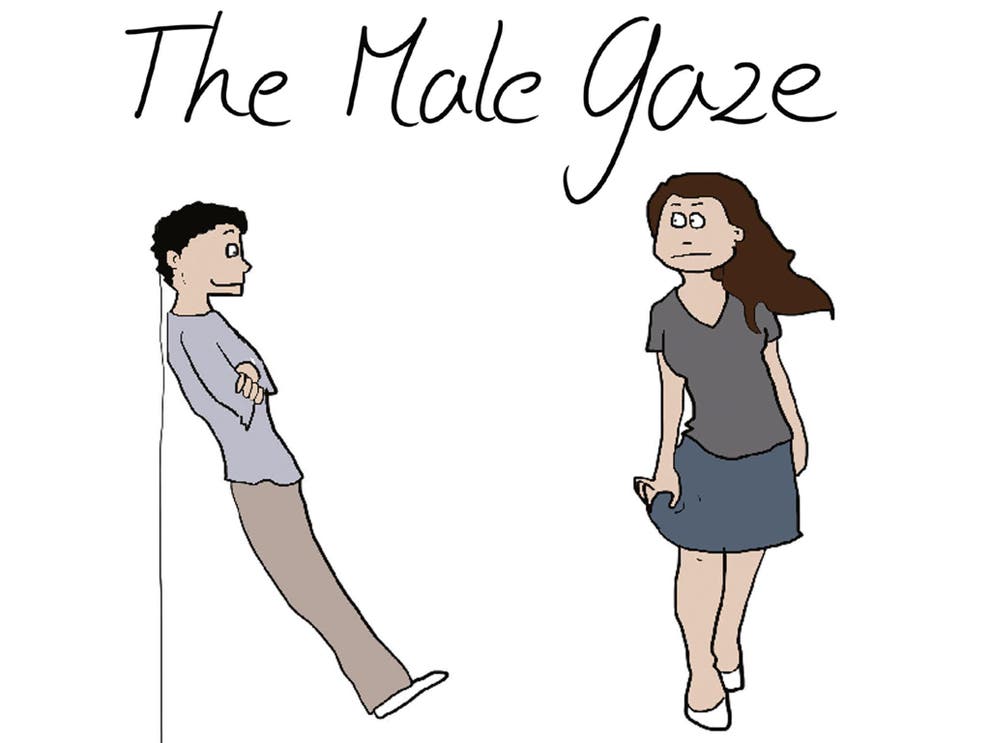Wednesday, March 8, 2023
Queerying Narrative Lectionary 133
Matthew 22:1-14
Jesus spoke to his chosen family in parables, once more. He said, 2"The kin-dom of heaven could be described as a ruler who gave a wedding banquet for his son. 3He sent all of his slaves to call the guests who had been invited to attend. The guests would not come. 4Again, the ruler sent other slaves out, saying to them, 'Tell those who have been invited: Look, everything is prepared: for dinner, the oxen and best quality of my cows have been prepared. Everything is ready! Come to the wedding banquet.' 5But the invited guests couldn't be bothered. One went back to his farm, another to his business, 6while another guest decided to be extra and seized up the ruler's slaves, mistreated them, and killed them. 7The ruler was enraged. He sent his troops, killed the guests who had murdered his slaves and burned their city. 8The ruler said to his remaining slaves, 'The wedding is ready, but those I originally invited were not worthy. 9Go then into the streets and invite everyone you can find to the wedding banquet.' 10The slaves went out into the streets and gathered everyone they could find, regardless of their character or worthiness, so that the wedding hall was filled with guests.
11"But when the ruler came in to see all the guests, he noticed that there was a man who was not wearing a wedding robe. 12The ruler said to him, 'Friend, how did you get in here without a wedding robe?' And the man was silent. 13Then the king said to the guests, 'Bind this man's hands and feet so he cannot get free. Then throw him into the outer unknown, where there will be weeping and gnashing of teeth.' 14For many are called, but few are chosen."
Queeries for the text:
What is this text building on?
What is the accompanying text?
Where is this going?
Why is the ruler such an asshole in this?
How has this text been used in antisemitic and supersessionist ways?
What does the heavenly banquet look like here and now?
What are your queeries?
Tuesday, July 27, 2021
Queerying 10th after Pentecost B
Tanakh: 2 Samuel 11:26 - 12:13a
When Uriah’s wife heard that her husband Uriah was dead, she lamented over her husband. After the period of mourning was over, David sent and had her brought into his palace; she became his wife and she bore him a son. But the Becoming One was displeased with what David had done, and sent Nathan to David.
Nathan came to him and said, “There were two humans in the same city, one rich and one poor. The rich one had very large flocks and herds, but the poor human had only one little ewe lamb that they had bought. They tended it and it grew up together with them and their children: it used to share their morsel of bread, drink from their cup, and nestle in their bosom; it was like a daughter to them.
“One day, a traveler came to the rich human, but they were loath to take anything from their own flocks or herds to prepare a meal for the guest who had come to them; so they took the poor human’s lamb and prepared it for the traveler who had come to them.”
David flew into a rage against the rich man, and said to Nathan, “As the Becoming One lives, the human who did this deserves to die! They shall pay for the lamb four times over, because they did such a thing and showed no pity.”
Then Nathan said to David, “That man is you!
“Thus said the Becoming One, the God of Israel: ‘It was I who anointed you king over Israel and it was I who rescued you from the hand of Saul. I gave you your master’s house and possession of your master’s wives; and I gave you the House of Israel and Judah; and if that were not enough, I would give you twice as much more.
“‘Why then have you flouted the command of the Becoming One and done what displeases Femme? You have put Uriah the Hittite to the sword; you took his wife and made her your wife and had him killed by the sword of the Ammonites. Therefore the sword shall never depart from your House—because you spurned Me by taking the wife of Uriah the Hittite and making her your wife.’
“Thus said the Becoming One: ‘I will make a calamity rise against you from within your own house; I will take your wives and give them to another human before your very eyes and she shall sleep with your wives under this very sun. You acted in secret, but I will make this happen in the sight of all Israel and in broad daylight.’”
David said to Nathan, “I stand guilty before the Becoming One!”
Queeries for the text:
Who is the unnamed woman at the beginning of this text?
What is her name?
What is David's crime?
Why might God's "punishment" be ineffective?
Why does the nation care about David's sex life?
-----
Rev. Emily E. Ewing queeries the Gospel reading.
Gospel: John 6:24-35
24So when the crowd saw that neither Jesus nor his chosen family were still with them, they themselves got into the boats and went to Capernaum looking for Jesus. 25When they found him on the other side of the sea, they said to him, “Rabbi, when did you come here?”
26Jesus answered them, “Very truly, I tell you, you are looking for me, not because you saw signs, but because you ate your fill of the loaves. 27Do not work for the food that perishes, but for the food that endures for everlasting life, which the Human One will give you. For it is on Them that God the Caregiver has set Femmes seal.”
28Then they said to Jesus, “What must we do to perform the works of God?”
29Jesus answered them, “This is the work of God, that you believe in the one whom Femme has sent.”
30So they said to Jesus, “What sign are you going to give us then, so that we may see it and believe you? What work are you performing? 31Our ancestors ate the manna in the wilderness; as it is written, ‘Femme gave them bread from heaven to eat.’”
32Then Jesus said to them, “Very truly, I tell you, it was not Moses who gave you the bread from heaven, but it is my Caregiver who gives you the true bread from heaven. 33For the bread of God is that which comes down from heaven and gives life to the world.”
34They said to him, “Leader, give us this bread always.”
35Jesus said to them, “I am the bread of life. Whoever comes to me will never be hungry, and whoever believes in me will never be thirsty.
Queeries for the text:
What did we miss?
What is hide and seek like with Jesus?
What loaves?
What food endures?
What is Femmes seal?
When is work faith? When is it not?
When did they eat manna? Why?
What gives life to the world?
Who is hungry?
What are your queeries?
Wednesday, July 21, 2021
Queerying 9th after Pentecost B
 River Needham, MA ThM queeries the Tanakh reading.
River Needham, MA ThM queeries the Tanakh reading.Tanakh: 2 Samuel 11:1-15
At the turn of the year, the season when kings go out to battle, David sent Joab with his officers and all Israel with him, and they devastated Ammon and besieged Rabbah; David remained in Jerusalem.
Late one afternoon, David rose from his couch and strolled on the roof of the royal palace; and from the roof he saw a woman bathing. The woman was very beautiful, and the king sent a man to make inquiries about the woman. He reported, “She is Bathsheba daughter of Eliam and wife of Uriah the Hittite.” David sent messengers to fetch her; she came to him and he "lay" with her—she had just purified herself after her period—and she went back home.
The woman conceived, and she sent word to David, “I am pregnant.”
Then David sent a message to Joab, “Send Uriah the Hittite to me”; and Joab sent Uriah to David.
When Uriah came to him, David asked him how Joab and the troops were faring and how the war was going. Then David said to Uriah, “Go down to your house and bathe your feet.” When Uriah left the royal palace, a present from the king followed him.
But Uriah slept at the entrance of the royal palace, along with the other officers of his lord, and did not go down to his house. When David was told that Uriah had not gone down to his house, he said to Uriah, “You just came from a journey; why didn’t you go down to your house?”
Uriah answered David, “The Ark and Israel and Judah are located at Succoth, and my master Joab and your majesty’s men are camped in the open; how can I go home and eat and drink and sleep with my wife? As you live, by your very life, I will not do this!”
David said to Uriah, “Stay here today also, and tomorrow I will send you off.” So Uriah remained in Jerusalem that day. The next day, David summoned him, and he ate and drank with him until he got him drunk; but in the evening, Uriah went out to sleep in the same place, with his lord’s officers; he did not go down to his home.
In the morning, David wrote a letter to Joab, which he sent with Uriah. He wrote in the letter as follows: “Place Uriah in the front line where the fighting is fiercest; then fall back so that he may be killed.”
Queeries for the text:
What happened to Bathsheba?
How might she recover today?
Who were the Hittites?
Who else has died for another's sins?
How do these dynamics play out today?
Where is God in this?
-----
Rev. Emily E. Ewing queeries the Gospel reading.
Gospel: John 6:1-21
After this Jesus went to the other side of the Sea of Galilee, also called the Sea of Tiberias. 2A large crowd kept following him, because they saw the signs that he was doing for the sick. 3Jesus went up the mountain and sat down there with his disciples. 4Now the Passover, the festival of the Jewish people, was near. 5When he looked up and saw a large crowd coming toward him, Jesus said to Philip, “Where are we to buy bread for these people to eat?” 6He said this to test him, for he himself knew what he was going to do.
7Philip answered Jesus, “Six months’ wages would not buy enough bread for each of them to get a little.”
8One of his chosen family, Andrew, Simon Peter’s brother, said to him, 9“There is a child here who has five barley loaves and two fish. But what are they among so many people?”
10Jesus said, “Make the people sit down.” Now there was a great deal of grass in the place; so they sat down, about five thousand in all. 11Then Jesus took the loaves, and when he had given thanks, he distributed them to those who were seated; so also the fish, as much as they wanted. 12When they were satisfied, Jesus told his disciples, “Gather up the fragments left over, so that nothing may be lost.”
13So the chosen family gathered them up, and from the fragments of the five barley loaves, left by those who had eaten, they filled twelve baskets. 14When the people saw the sign that Jesus had done, they began to say, “This is indeed the prophet who is to come into the world.”
15When Jesus realized that they
were about to come and take him by force to make him king, he withdrew
again to the mountain by himself.
16When evening came, his chosen family went down to the sea,
17got into a boat, and started across the sea to Capernaum. It was now dark, and Jesus had not yet come to them.
18The sea became rough because a strong wind was blowing.
19When they had rowed about three or four
miles, they saw Jesus walking on the sea and coming near the boat, and
they were terrified.
20But Jesus said to them, “It is I; do not be afraid.”
21Then they wanted to take Jesus into the boat, and immediately the boat reached the land toward which they were going.
Queeries for the text:
After what?
What and when is Passover?
Where don't we acquire bread for these people to eat?
How much is 6 months' wages?
What is food among so many people?
What is lost today?
Why twelve baskets?
How did the chosen family expect Jesus to catch up?
How does travel change?
What are your queeries?
Wednesday, December 4, 2019
Queerying Advent 2A
Tanakh: Isaiah 11:1-10
But a shoot shall grow out of the stump of Jesse, a twig shall sprout from his stock.
The spirit of the Becoming One shall alight upon her:
Queeries for the text:
How do twigs sprout from stock?
How is the spirit of the Becoming One separate from or a part of the Becoming One? Does her spirit have devotion and reverence for her? Does this make her narcissistic?
Who are the lowly of the land?
What might the breath of her lips tell us about the Becoming One?
How might biology change in this vision of reality?
How is devotion to the Becoming One quantified?
-----
Rev. Emily E. Ewing queeries the Gospel reading.
Gospel: Matthew 3:1-12
In those days John the Baptist appeared in the wilderness of Judea, proclaiming,
7But when John saw many Pharisees and Sadducees coming for baptism,
he said to them,
11“I baptize you with water for repentance, but one who is more powerful than I is coming after me; I am not worthy to carry this one's sandals. They will baptize you with the Holy Spirit and fire. 12Their winnowing fork is in their hand, and they will clear their threshing floor and will gather their wheat into the granary; but the chaff they will burn with unquenchable fire.”
Queeries for the text:
Did John apparate into the wilderness? If not, how did John just appear?
Why would the Becoming One want anything straight?
Why locust and wild honey?
What kind of fruit is worthy of repentance?
Can stones become children?
Is good fruit worthy of repentance? Why would good fruit need repentance?
Who is what? Fruit? Wheat? Chaff? Are we even meant to be in the symbolism?
What sort of baptism happens by fire?
What are your queeries?





